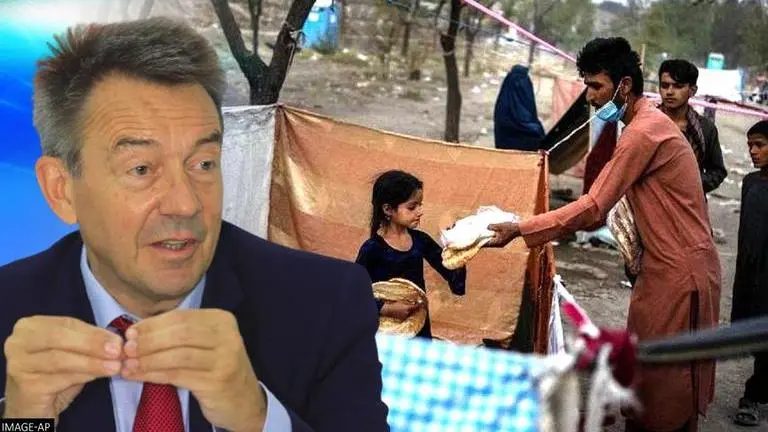Updated 19 November 2021 at 16:01 IST
Afghanistan's most pressing need is cash, struggling to pay doctors: ICRC
"Main problem in Afghanistan is not hunger, it is the lack of cash to pay salaries to deliver social services which have existed before,” ICRC President said.
- World News
- 3 min read

President of the International Committee for the Red Cross (ICRC) Peter Maurer on Thursday warned that Afghanistan’s looming humanitarian crisis has worsened so bad that aid organizations are struggling to pay doctors, nurses and healthcare staff amid the COVID-19 pandemic. The latter added that due to the frozen assets and disruption of banking services, there is currently no way to transfer salaries to the medics’ bank accounts. The Geneva-based ICRC, which has operated in Afghanistan for over 30 years, has been carrying around “bags of cash” ABC news outlet reported, adding that they have also been converting the dollars into local currency in order to pay salaries.
"The main problem in Afghanistan is not hunger. The main problem is the lack of cash to pay salaries to deliver social services which have existed before,” ICRC President Peter Maurer additionally told The Associated Press in an interview on Thursday during a visit to Dubai.
“Let’s not forget that most of these medical doctors, nurses, operators of water systems and electricity systems are still the same people. It is the leadership which has changed, but not these people," he added.
ICRC sought prior approval from the US Treasury Department’s Office of Foreign Assets Control for conversions. Meanwhile, the agency also has an arrangement with the Taliban-run Health Ministry that allows the aid group to bypass the government in order to pay the donor money to the staff. Maurer also accused the international community’s “reluctance” in providing humanitarian aid. In an interview with The National this week, he said that the international community “appears to have settled on the formula that humanitarian aid is OK, but nothing more”.
Furthermore, the head of the Red Cross stressed, “humanitarian aid has never been designed to substitute a dysfunctional system. It is meant to cope with momentarily disrupted situations and not be a substitute for government structure and an economy,” The National reported.
Afghanistan might fall into 'extreme poverty' by mid-2022
International Organization for Migration (IOM) earlier expressed concern over the humanitarian situation in Afghanistan, as it warned that the country might fall into “extreme poverty” by mid-2022 if no efforts are made immediately to address the humanitarian, economic and political crisis in the war-torn nation. A UN report also highlighted the worsening humanitarian crisis in Afghanistan, stressing that the country is on a brink of a hunger catastrophe.
Advertisement
In conversation with NPR's Audie Cornish, United Nations agency Food and Agriculture Organization's representative in Afghanistan, Richard Trenchard cited a recent report released by the UN as he said that nearly 19 million Afghans, approximately half of Afghanistan’s population, are now facing acute food insecurity. He then went on to elaborate that the humanitarian crisis was flared by the drought that ravaged the central Asian country, last year.
Published By : Zaini Majeed
Published On: 19 November 2021 at 16:01 IST
